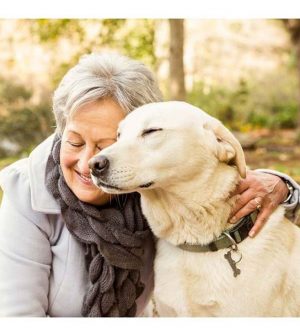- Gelatin vs. Collagen: Which is Best for Skin, Nails, and Joints?
- The Long-Term Effects of Daily Turmeric Supplements on Liver Health
- Could Your Grocery Store Meat Be Causing Recurring UTIs?
- Are You Making This Expensive Thermostat Error This Winter?
- Recognizing the Signs of Hypothyroidism
- 10 Strategies to Overcome Insomnia
- Could Artificial Sweeteners Be Aging the Brain Faster?
- Techniques for Soothing Your Nervous System
- Does the Water in Your House Smell Funny? Here’s Why
- Can a Daily Dose of Apple Cider Vinegar Actually Aid Weight Loss?
Your Dog May Help Keep Disability at Bay

That daily 6 a.m. walk around the block with your dog may be tough but healthy: New research suggests the exercise and companionship is lowering your odds of developing a disability.
However, the good news doesn’t extend to cat lovers, the researchers added.
They analyzed data gathered from more than 11,200 Japanese adults, ages 65-84, between June 2016 and January 2020.
During that time, dog owners were about half as likely to have a disability as those who never owned a dog. Dog owners who exercised regularly had an even lower risk of disability.
The association between dog ownership and a lower risk of disability held even after the researchers accounted for other disability risk factors, such as marital status, chronic diseases and time spent outdoors.
Cat ownership was not connected with any difference in disability risk, and neither dog nor cat ownership was linked with reduced risk of death from any cause, according to the study published Feb. 23 in the journal PLOS ONE.
“Dog ownership protects against the onset of disability in older adults,” study author Yu Taniguchi, from the National Institute for Environmental Studies in Tsukuba, Japan, and colleagues said in a journal news release. “The daily care, companionship and exercise of a pet dog may have an important role to play in successful aging.”
The team said the findings could help guide efforts to promote successful aging, and suggested that future research could examine the physical and mental ways that dog ownership might reduce the risk of disability, or examine the association between dog ownership and disability risk in other countries.
Previous research by the study authors found that Japanese seniors who owned dogs had a lower risk of frailty, and other research has shown that frailty significantly increases the risk of future disability.
More information
The U.S. National Institute on Aging offers resources on exercise and physical activity.
SOURCE: PLOS ONE, news release, Feb. 23, 2022
Source: HealthDay
Copyright © 2026 HealthDay. All rights reserved.










